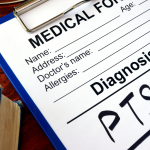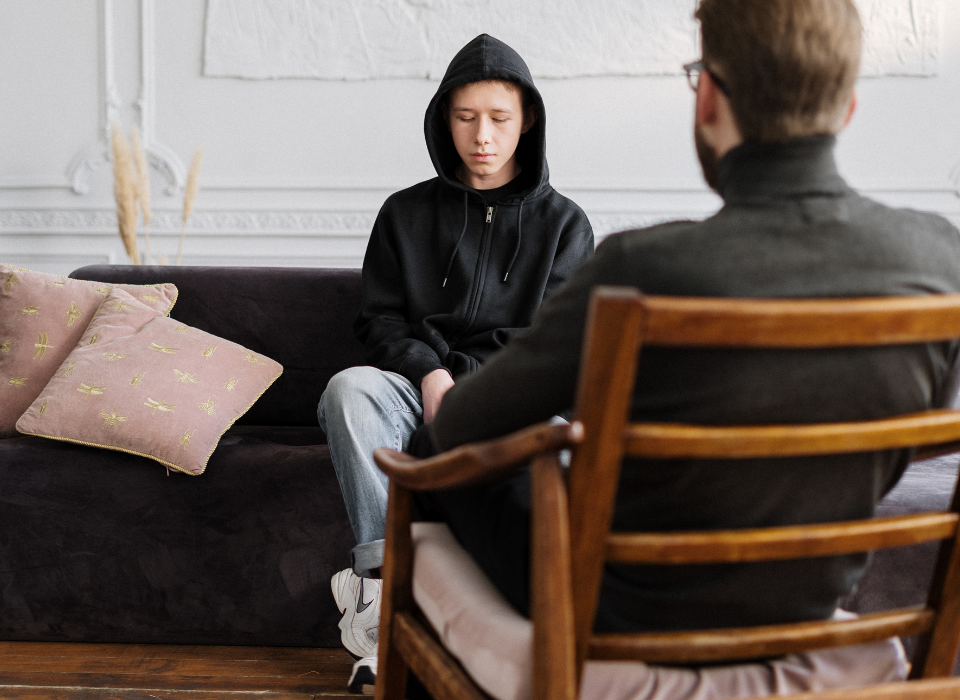
Understanding What Causes PTSD: Breaking Down the Roots of Trauma
May 16, 2025
When to Seek Help: Signs a Gay Man Needs Therapy and How to Find the Right Support
June 2, 2025
Post-Traumatic Stress Disorder (PTSD) is a widely recognized and deeply impactful mental health condition that affects millions of people worldwide. Often misunderstood or misclassified by the general public, PTSD can be mistakenly grouped with conditions like depression or bipolar disorder. This confusion leads many to ask: Is PTSD a mood disorder? The answer is no—PTSD is not a mood disorder, although it may share some overlapping symptoms. So, what is PTSD classified as, and is it considered a mental disorder at all? Let’s take a closer look at how PTSD is defined, what sets it apart from other mental health conditions, and why accurate classification is so vital for proper diagnosis and treatment.
Is PTSD Considered a Mental Disorder?
Yes—PTSD is considered a mental disorder. It is officially recognized in the Diagnostic and Statistical Manual of Mental Disorders (DSM-5), the standard classification manual used by mental health professionals in the U.S. and internationally. The DSM-5 includes PTSD under the broader category of Trauma- and Stressor-Related Disorders.
This classification affirms that PTSD is a real, diagnosable mental health condition with specific criteria. It develops in response to experiencing or witnessing a traumatic event such as war, natural disasters, physical or sexual assault, serious accidents, or other life-threatening experiences. People with PTSD often relive the trauma through flashbacks or nightmares, experience intense emotional distress, and may avoid anything that reminds them of the event.
What Is PTSD Classified As?
So, what is PTSD classified as if it isn’t a mood disorder? According to the DSM-5, PTSD belongs to a group of conditions called Trauma- and Stressor-Related Disorders. These disorders are unique because exposure to a traumatic or stressful event is an essential component of the diagnosis.
The Trauma- and Stressor-Related Disorders category includes:
- Post-Traumatic Stress Disorder (PTSD)
- Acute Stress Disorder (ASD)
- Adjustment Disorders
- Reactive Attachment Disorder (RAD)
- Disinhibited Social Engagement Disorder (DSED)
PTSD is distinct from other disorders in this category because of its duration (symptoms must persist for more than one month) and the presence of specific symptom clusters, including:
- Intrusion symptoms (e.g., nightmares, flashbacks)
- Avoidance of reminders of the trauma
- Negative alterations in mood and cognition (e.g., guilt, shame, memory issues)
- Hyperarousal (e.g., being easily startled, feeling on edge)
These symptoms must cause significant distress or impair functioning in daily life.
Why PTSD Is Not a Mood Disorder
Mood disorders—which include major depressive disorder, bipolar disorder, and persistent depressive disorder (dysthymia)—are primarily characterized by persistent disruptions in mood. These disorders revolve around emotional states such as prolonged sadness, elevated mood, irritability, or mood swings.
While PTSD can involve changes in mood, like depression, irritability, or emotional numbness, it differs fundamentally in its origin and core symptoms. The defining feature of PTSD is a direct link to a traumatic experience, rather than a dysfunction in mood regulation alone.
Here’s a key distinction:
- In mood disorders, the mood symptoms are primary—they are the central issue.
- In PTSD, mood changes are secondary—they are part of a broader reaction to trauma that includes re-experiencing, avoidance, and hypervigilance.
So, to answer the question clearly:
Is PTSD a mood disorder? No, PTSD is not a mood disorder. It is classified as a trauma-related mental disorder.
The Importance of Proper Classification
Why does it matter what PTSD is classified as? Accurate classification is essential for diagnosis, treatment planning, and understanding how PTSD affects the brain and body. Misclassifying PTSD as a mood disorder could lead to incomplete treatment approaches that fail to address trauma-specific symptoms like flashbacks, avoidance behaviors, or emotional detachment.
Treatment for PTSD often includes:
- Trauma-focused cognitive behavioral therapy (TF-CBT)
- Eye Movement Desensitization and Reprocessing (EMDR)
- Medication (such as SSRIs, which are also used for mood disorders but prescribed differently in trauma contexts)
- Group therapy and peer support, especially for veterans or survivors of violence
Treatment works best when it is tailored to the disorder’s root cause—trauma, not just its emotional effects.
PTSD and Co-Occurring Conditions
It’s also worth noting that PTSD often coexists with other mental health disorders, including mood disorders. Many people with PTSD also experience depression, anxiety, or substance use disorders. This overlap can make diagnosis more complex and sometimes reinforces the misconception that PTSD is itself a mood disorder.
Mental health professionals are trained to differentiate between conditions that share symptoms. For example, while both PTSD and depression may involve sleep problems, hopelessness, and difficulty concentrating, only PTSD includes trauma-specific symptoms like flashbacks or intense reactions to triggers.
Get Help Today
So, is PTSD a mood disorder? The short answer is no. While PTSD can lead to mood-related symptoms like depression and irritability, it is not classified as a mood disorder. Instead, it is part of a specialized category of Trauma- and Stressor-Related Disorders, emphasizing its unique link to traumatic experiences.
And is PTSD considered a mental disorder? Absolutely. Recognizing PTSD as a distinct and valid mental health condition is crucial for promoting proper treatment, reducing stigma, and helping individuals heal from trauma in a way that addresses the full scope of their experience.
If you or someone you know is struggling with symptoms of PTSD, it’s essential to seek support from a qualified mental health professional. Recovery is possible, and understanding the nature of PTSD is the first step on the path to healing.
_________________________________________________________________________________
Looking for treatment for an eating disorder, anxiety, depression, trauma, or postpartum mood disorder?
Evolve Counseling Services is a specialized team of Licensed Therapists providing treatment in Paoli.



